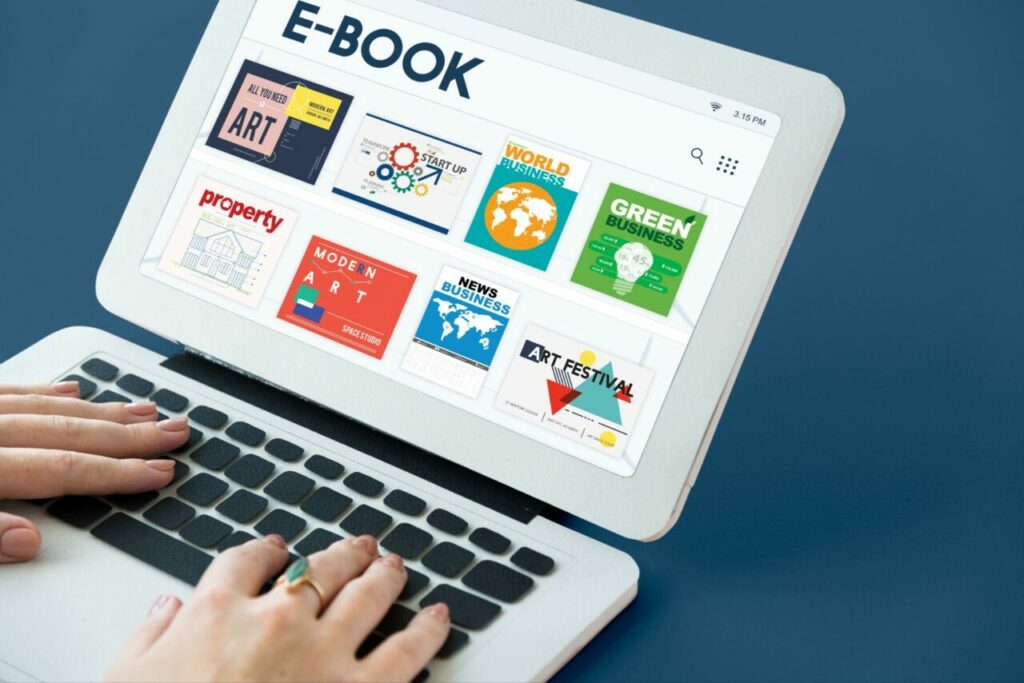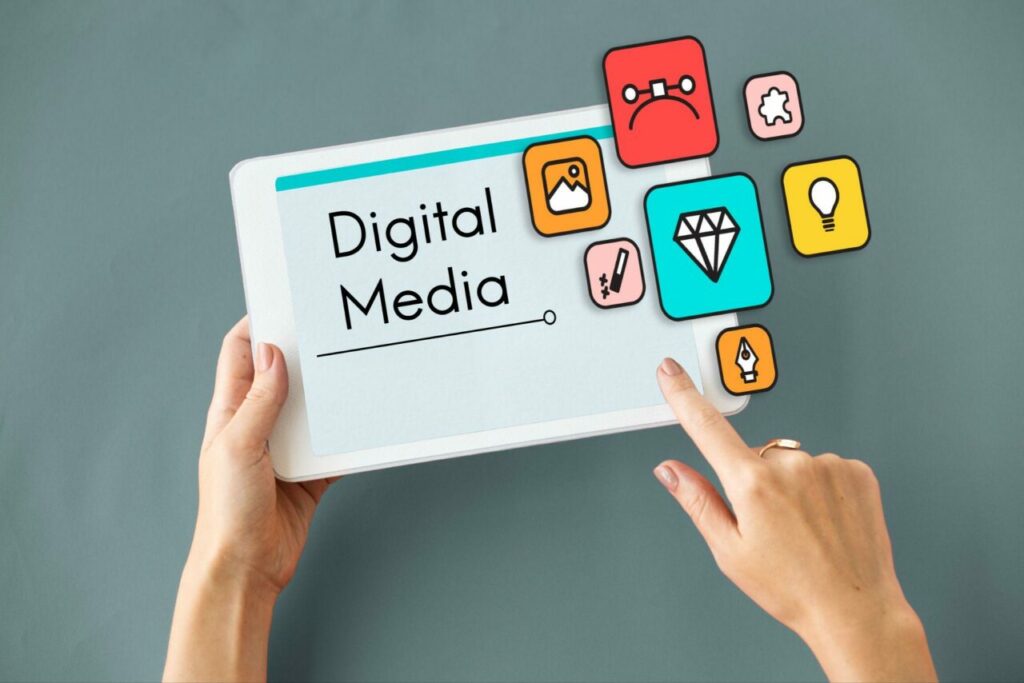Digital publishing has become increasingly popular in recent years with the rise of technology and the internet. So, it has opened up new chances for publishers.
However, like any industry, there are both advantages and disadvantages of being a digital publisher. In this post, I will explore the advantages as well as disadvantages and discuss the current trends in the industry.
Besides, I will also delve into the impact of digital publishing on the traditional publishing landscape. So, let’s dive into this post for more details!
What Is a Digital Publisher?
Digital publishing is the process of creating and distributing digital content, such as e-books, audiobooks, and online magazines, through electronic devices and platforms. It has revolutionized the traditional publishing industry and has made it easier for authors to reach a wider audience.
A digital publisher is in charge of ensuring the stream of content publishing runs smoothly. They work with other members of the content operations team to publish content. They also need to look for appropriate visuals and adapt them to the brand style.

The tasks a digital publisher manages may depend on the content they work with and the publishing studio they operate within. These are some tasks a digital publisher may manage during a normal day:
- Review potential materials for publishing.
- Meet with creators and managers.
- Negotiate terms of publishing.
- Manage editors and producers.
- Collaborate with design professionals.
- Develop timelines for production.
- Oversee publishing marketing efforts.
Digital publishing is a promising career choice with a lot of benefits. Pros of being a digital publisher include job opportunities in diverse fields, a growing industry with high demand, quick access to emerging trends, etc.
However, cons encompass health risks due to prolonged screen exposure, handling mixed customer opinions and feedback, and the high-pressure nature of the profession, demanding consistent quality and meeting deadlines.
Being a digital publisher offers numerous advantages in today’s fast-paced and ever-evolving world of content creation and dissemination. In this part, I will delve into the five key benefits of pursuing a career in digital publishing
1. Job opportunities
As a digital publisher, you have a wide range of job opportunities available to you. You can work for publishing companies, online magazines, news websites, or even start your own digital publishing business.
The digital publishing industry is constantly evolving, creating new positions and roles for individuals with diverse skills and expertise. For instance, you might work as a content strategist for a major e-commerce platform.
2. Developing field
Digital publishing is a rapidly growing field. With the increasing popularity of online content consumption, the demand for digital publishers is on the rise.
This growth presents exciting opportunities for professionals in this industry to explore new avenues and stay ahead of the curve.
3. High demand
Digital publishers are in high demand due to the increasing need for quality online content. Businesses and organizations are constantly looking for ways to engage their target audiences through digital channels.
This demand ensures that digital publishers have a steady stream of work. Businesses recognize the need for a strong online presence.
4. Access to trends quickly
One of the major advantages of being a digital publisher is the ability to access trends quickly. In the digital publishing world, trends come and go quickly, and being able to stay updated is crucial.
As a digital publisher, you have access to various online tools and platforms. It allows you to monitor trends, analyze data, and adapt your strategy accordingly.
5. Good pay
Being a digital publisher can be financially rewarding. With the high demand for digital content, skilled digital publishers can command higher salaries.
Additionally, as you gain more experience and build a strong portfolio, you can also explore freelance opportunities and charge premium rates for your services.
The typical annual income for a digital publisher in the United States amounts to $78,690. With the right skills, knowledge, and dedication, you can thrive in this dynamic industry and enjoy a rewarding career as a digital publisher.

6. Hourly exposure on desktop
One of the downsides of being a digital publisher is the constant exposure to screens and working on a desktop for long hours. This can lead to eye strain, fatigue, and other health issues associated with sedentary work.
A digital publisher working on complex projects may spend hours in front of a desktop, leading to eye fatigue and discomfort. So, it is important for digital publishers to take regular breaks, practice good ergonomics, and prioritize their well-being to mitigate the negative effects of prolonged screen time.
7. Dealing with mixed opinions from customers
In the digital publishing world, feedback from customers can be both positive and negative. While positive feedback can be encouraging and uplifting, negative feedback can be disheartening and challenging to deal with.
Managing this diversity of opinions and maintaining a positive online presence can be emotionally taxing. It is important to listen to customer feedback, learn from it, and continuously improve the quality of content and user experience.
8. Pressure
Being a digital publisher often comes with tight deadlines and high expectations. In the fast-paced digital world, there is constant pressure to produce high-quality content, and stay ahead of competitors.
This pressure can be stressful and overwhelming at times. Digital publishers need to effectively manage their time, prioritize tasks, and find ways to cope with stress to maintain productivity and well-being.
Should You Become a Digital Publisher?
Deciding whether or not to become a digital publisher is a significant career choice. You need to consider the factors involved before making a decision.
- Passion for Content Creation: If you have a strong passion for writing, designing, or creating digital content, this field may be an excellent fit.
- Adaptability: The digital landscape is constantly evolving. Are you open to adapting to new trends and technologies? Successful digital publishers need to stay up to date with the latest developments and be willing to evolve their skills and strategies accordingly.
- Health Considerations: Be aware of the potential health issues. Taking steps to mitigate these risks, such as ergonomic work setups and breaks.
- Financial Considerations: Consider the potential earnings in the field and whether it aligns with your financial goals and expectations.
- Work-Life Balance: Assess your ability to maintain a healthy work-life balance. The digital publishing industry can be demanding; therefore, it is essential to find a balance that suits your work and your life.
Conclusion
I just have shown you clearly the pros and cons of being a digital publisher. While there are challenges that come with digital publishing, the current trends in the industry show that it is here to stay strongly.
As we see, with the rise of self-publishing and the use of technology to enhance the reading experience, the future of digital publishing looks bright.
However, you should consider both the rewarding aspects and the potential drawbacks. Those who enter this field should be ready to balance their dedication to their work and their personal well-being.
